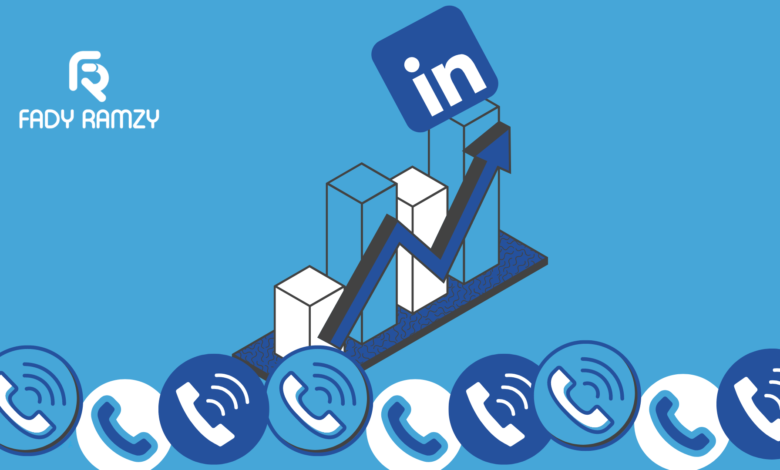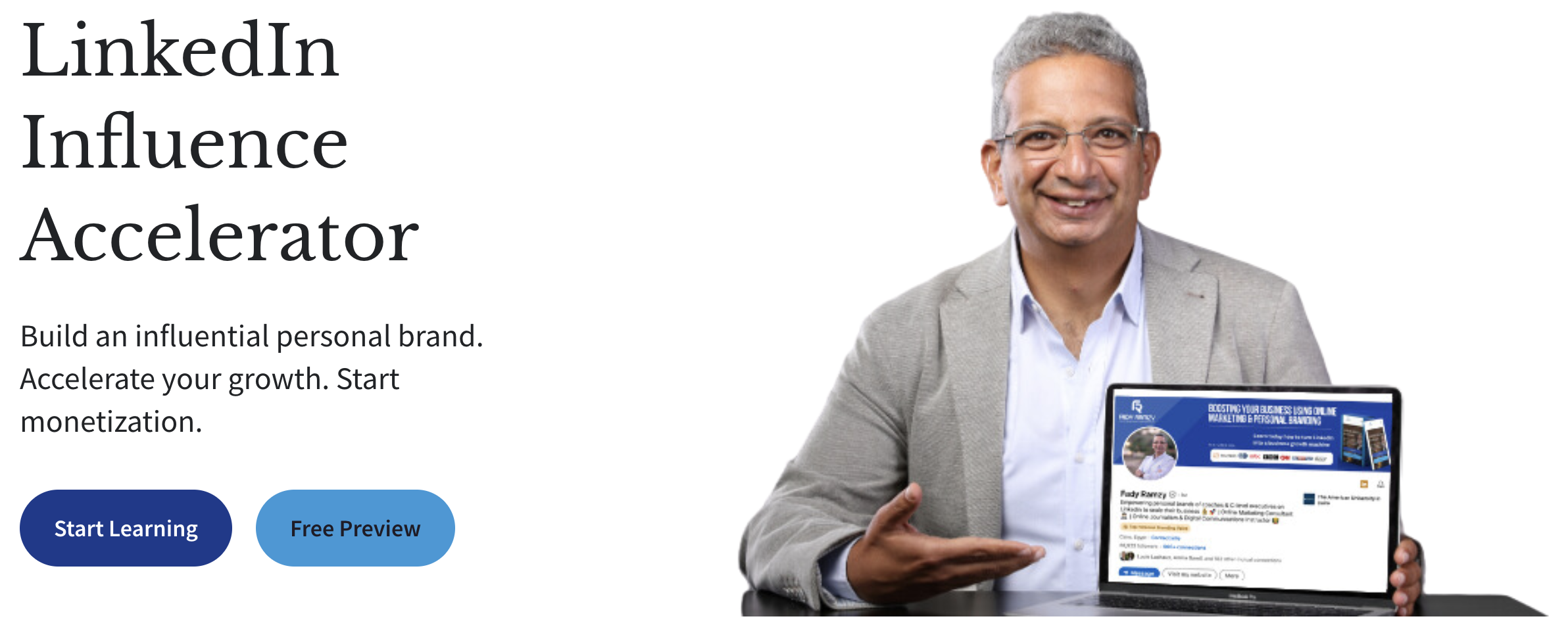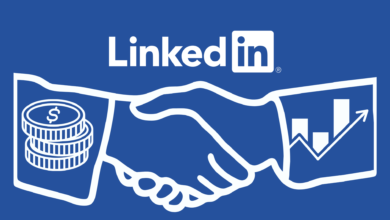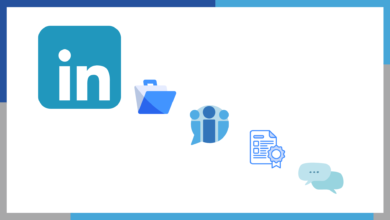
This article is based on the LinkedIn audio event that I truly enjoyed with Stef Curcio, Guru of Sales on LinkedIn.
Want to book more sales calls via LinkedIn? This guide is your invaluable go-to!
Step one: The Four Lead Generation Essentials
- Content & Lead Magnets: Create valuable, attractive content. Include “lead magnets”: free resources like eBooks or templates that require email signup.
- Targeted DMs to Relevant comments, followers, connection requests senders, & profile visitors.
- Profile Funnel: Promote different lead magnets. On the background image, the “Features” section and a custom bio link.
- Email Nurturing Sequences: Don’t neglect email marketing. Leverage email sequences to nurture leads and guide them toward sales calls.
Unlock LinkedIn’s full potential! It’s not just about content or DMs. Maximize your sales calls. Via combining content creation, targeted outreach, and powerful email nurturing sequences.
Step Two: Nurturing Conversation for Sales
1- Using Lead Magnets Strategically
- Create a Gated Lead Magnet: This valuable resource captures email addresses. Again, this can be an eBook, checklist, guide or template, and so on.
- Nurture Your Leads: through an email sequence. This is a series of 5 to 7 emails, to educate and build trust with your leads.
- Diversify Your Lead Magnets: Don’t just have one! Create different lead magnets. Place them in different locations: content, cover image & feature section.
- Rotate Promotions: With a variety of lead magnets, you can promote a new one each week. This keeps things fresh for your audience. It also attracts new leads every promotion cycle.
Promoting the same lead magnet repeatedly leads to “expiration.” After seeing it for weeks, fewer people will be interested in downloading it.
2- From Lead Magnets to Sales Calls
Avoid generic introductions. (e.g., “Hi, I’m Steph, this is my service. Do you want to hop on a call with me?…”).
- Start with DMs: Don’t just send the lead magnet when someone requests it. Use the interaction to initiate a conversation.
- Ask a Pivoting Question: like “Are you trying to find new clients on LinkedIn?” This question sparks a business discussion & helps you understand their goals.
- Probe & Look for Signals: Ask follow-up questions. Look for signs of interest, like them mentioning a struggle you can help with.
- Qualify & Invite: Once you’ve built rapport through probing and they seem to fit, invite them to a sales call.
3- From Sales Calls to Closed Deals
- Pre-empt Objections: Anticipate potential concerns (like requesting results). Address them before sales calls through email sequences. Like sharing video testimonials.
- Evaluating their Needs: Diagnosing the problem that your offer can solve by asking questions. It also helps shift the focus from you solely being judged by the lead.
- Offer: Once you identify the lead’s problem, present your solution as the answer.
Step three: Efficient Execution
1- Power Hour: Daily Priority Tasks
- Targeted Outreach: Send 5-10 personalized connection requests.
- DM Response
- Content Creation
- Optimize Strategy: Consider reducing commenting for better time allocation.
2- Finding and Nurturing Valuable Connections
• Identify valuable leads:
* Look for “sales triggers“. Like comments on relevant posts or struggles on their LinkedIn profile.
* Look at your followers’ “Comments” section to see who they engage with.
* Identify relevant content creators. Target engaged users who are actively seeking resources on those profiles.
• Engage authentically:
* Offer value first (e.g., lead magnet) with personalization (e.g., mentioning their latest post).
* Ask permission before sharing anything (e.g., “Would you like me to send it over?”).
• If they don’t respond initially:
* Use a CRM to manage conversations and schedule follow-ups.
* Use your content (e.g., blog articles, posts) to attract them.
* Restart conversations with fresh, relevant resources.
* Respect their boundaries if they’re not interested.
3- Choosing the Right Customers
- Importance of Qualification:
- Avoid time-consuming sales calls with those who don’t value your offering. Qualifying leads upfront helps identify good-fit clients.
- Psychological Barrier:
- The desire to work with as many clients as possible can hinder effective selection.
- Ending Unproductive Relationships:
- It’s okay to terminate services with clients who are not a good fit. This allows you to focus on better prospects.
LinkedIn can be slow and competitive! but there are ways to make it work for you. Don’t be afraid to invest time, and resources, or even get help to find your own successful approach. Especially if it aligns with your goals.
Summary
- Leads Generation Essentials
-
- Content & Lead Magnets
- Targeted DMs
- Profile Funnel
- Email Nurturing Sequences
- Nurturing Conversation for Sales
-
- Create a Gated Lead Magnet
- Have conversations on DM
- Invite for sales calls
- Strategies for Efficient Management
1. Power Hour: Daily Priority Tasks
2. Finding and Nurturing Valuable Connections
3. Scaling with Email Automation
4. Scaling with Digital Products
5. Choosing the Right Customers
Finally, do you want to step ahead?
The “LinkedIn Influence Accelerator” is a course for founders, coaches, and communicators. It is crafted for professionals who want to create a process for consistent growth while enjoying time freedom.
Start boosting your personal brand now!




